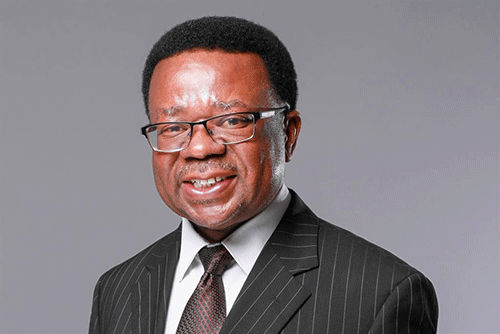Government Institutions Pension Fund CEO David Nuyoma said there is a special need to be on guard to thwart any attempts by those who are tempted to satisfy their greed by dipping their hands in the cookie jar.
He made these remarks on Tuesday during the launch of GIPF whistleblower platform, under the theme: ‘Towards fostering an ethical culture in GIPF: Whistleblowing as an enabler for deterring unethical conduct’.
“Whistleblowing is important for fostering high ethical standards and maintaining member and public confidence in the GIPF and its operations. Through this platform, we seek to encourage a culture of speaking out against wrongdoing; and detect,” he explained.
The CEO further stated GIPF has a membership of over 145 000 members, retirees, and annuitants and with an asset value of over N$140 billion, thus the launch signifies the fight against corruption as a critical component in guarding and growing member benefits for their greater good.
Nuyoma added every month, over N$300 million is paid to pensioners, orphans and other legitimate dependents and massive investment amounts are transacted.
At the same occasion, justice minister Yvonne Dausab touched on issues delaying implementation of the whistleblower protection legislation. She said government enacted the Whistleblower Protection Act, 10 of 2017 with the primary aim to provide a legislative framework for the protection of whistleblowers.
“The legislation specifically provides for the Whistleblower Protection office and relevant procedures for making disclosures of improper conduct, the investigation of disclosures of improper conduct and protection of whistleblowers. It further provides for investigation of complaints of detrimental actions, the review of certain decisions and the remedies of a person(s) against whom detrimental action is taken,” explained Dausab.
According to her, the justice ministry is committed to ensuring the implementation of this legislation. However, the minister noted it must be done appropriately and effectively and this is where the costs of the implementation come in.
“The latest estimate placed the cost of this exercise at N$160 million per annum if one takes into account the financial and human capital costs involved in implementing the law. The funds are simply not available, and hence our drive to source alternative sources of funding such as grants in order to realise this noble objective,” she said.
Dausab assured government remains resolute in finding a solution and have embarked on innovative initiatives towards sourcing funding to enable the implementation of this legislation.


